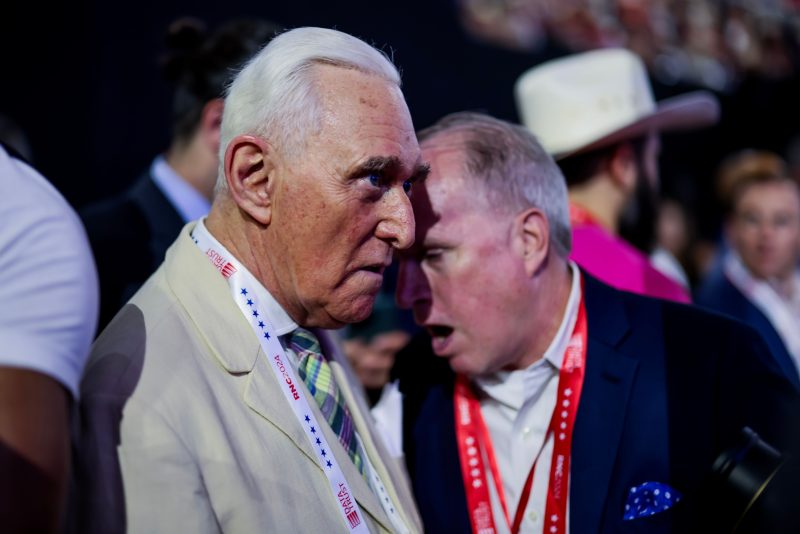The Justice Department’s inspector general on Wednesday blamed “ineffectual leadership” and not political interference for the softening of Roger Stone’s sentencing recommendation in February 2020 after his conviction for lying to Congress. The report upheld an account by then-Attorney General William P. Barr but also found that line prosecutors’ suspicions of political meddling by President Donald Trump’s administration were not unreasonable.
A longtime political confidant of Trump and a GOP consultant, Stone was found guilty by a jury in November 2019 of lying to a House panel investigating Russian interference in the 2016 U.S. presidential election. At sentencing, front-line prosecutors initially notified the court that a sentence of about six to seven years would be appropriate under federal guidelines.
Within hours of that filing, and after Trump tweeted that the request was “disgraceful” and a “miscarriage of justice” that could not be allowed, Barr overruled the trial team. A second memo signed by supervisors retracted the recommendation, prompting all four prosecutors to quit the case. Some of them later said publicly that they believed they were undercut by department leaders to protect Trump’s longtime ally.
Stone was ultimately sentenced to a little more than three years behind bars, which Trump later commuted, sparing him prison time.
The Stone sentencing triggered a crisis of confidence in Barr and the Justice Department through the end of Trump’s presidency, prompting hundreds of former employees to call for his resignation and to exhort active employees to report any unethical conduct or politicization of decisions.
After a four-year investigation, the office of Inspector General Michael E. Horowitz said it found no evidence of political interference and instead blamed “ineffectual leadership” by then-acting U.S. attorney Tim Shea of Washington, D.C., who was supervising the case and who had been on the job for two weeks.
Barr, who declined to be interviewed for the inspector general’s investigation, at the time denied that Trump’s Twitter tirade prompted the reversal. Instead, Barr said Shea — formerly one of his closest advisers at the department — had initially signaled to him that the recommendation would be much lower. Barr said he had been “very surprised” by the outcome.
Horowitz’s office found that “rather than taking the approach he discussed with Barr, and despite telling Barr that he believed the Guidelines range was unreasonable,” Shea authorized line prosecutors to issue a stiffer recommendation. Barr expressed to staffers that the action was not what he and Shea had discussed and needed to be “fixed,” but the inspector general found that Barr’s position was consistent before and after the recommendation was filed and before Trump tweeted.
“Based on the evidence described in this report, we concluded that the sequence of events that resulted in the Department’s extraordinary step of filing a second sentencing memorandum was largely due to Shea’s ineffectual leadership,” the report concluded.
The report added, however, that prosecutor Aaron Zelinsky’s later testimony to Congress that he and the rest of the trial team had been pressured to revise the memorandum for political reasons “was not unreasonable.” It cited statements by another prosecutor and “speculative comments” by a supervising prosecutor about possible political interference.
“We recognize that the Department’s handling of the sentencing in the Stone case was highly unusual,” given the participation of Trump political appointees Shea and Barr, the report stated. However, it concluded that absent any prohibition on their involvement, their actions were ultimately left up to their own “discretion and judgment,” including on how they would affect public perceptions of the department’s integrity and independence.
Zelinsky attorney Joshua Matz said in a statement: “The rule of law depends on prosecutors pursuing and telling the truth. My client is gratified the report confirms that he told the truth about what he saw and heard.”
Representatives for Shea, Barr and Trump could not immediately be reached for comment.








